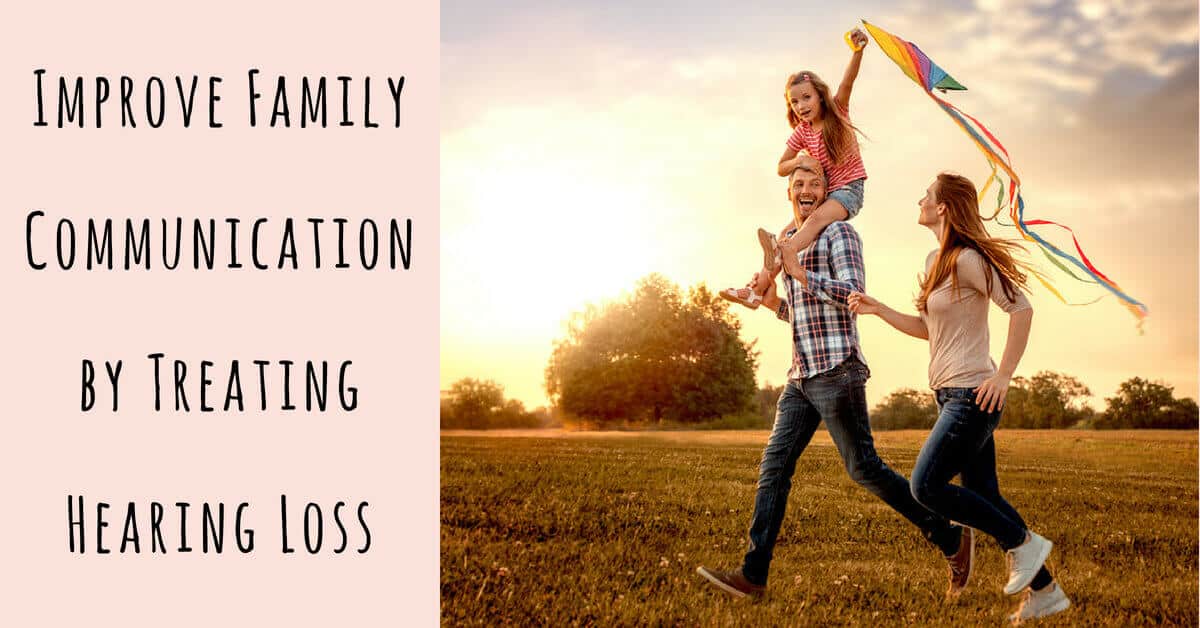
There are many reasons to treat hearing loss. Hearing loss occurs when sounds are unable to travel between the outer, middle, and middle ear. Sometimes this occurs because of biological reasons such as age related hearing loss, but there are environmental roots to hearing loss as well. This can include being around loud noises for short amounts of time, as could happen when around a loud explosion such as a firework, or over the course of long periods of time, as when a person is working in a factory or a place with loud machinery.
The Effects of Hearing Loss
It is really important to treat hearing loss because it affects the physical body as well as people’s mental states. Untreated hearing loss has been associated with the increased risk of falls and accidents, leading to great bodily injury, especially for people who are older. There are other, more subtle ways that hearing loss affects people’s wellbeing, however. There is in fact a link between untreated hearing loss and depression, as well as anxiety. This is because when we cannot hear the complexity of our surroundings, we can feel quite disconnected from the places we live in, work at, and frequent every day. When this happens, we can feel increasingly disconnected from friends, loved ones, and coworkers.
A person with untreated hearing loss may appear lost in conversation, or as if they do not want to contribute to conversation at all. They may respond too softly or too loudly because they themselves are not “accurately” hearing the noise level of conversation. After a while, they may want to recede from public life altogether, preferring to stay home and avoid conversation as well as spaces where it is difficult to distinguish conversation from the background noise that surrounds it.
Hearing and Communication
Treating hearing loss is an important step to creating a healthy lifestyle where one feels connected to their surroundings. It is also a really important step in improving communication amongst one’s family. Taking steps to improve hearing loss will ultimately have positive effects on all aspects of one’s life.
Maintaining communication with your family about what your hearing needs are is really important to your overall mental health. There are different ways to disclose to your family members that you are experiencing hearing loss in the first place. You may simply let them know that you, for example, hear better out of one ear than the other, and that you would prefer if they speak from that side of your body. If you are clear about how you need to hear and/or to communicate, you will limit miscommunications that might lead to hurt feelings. People experiencing hearing loss often have trouble distinguishing amongst many different sounds, making it difficult to communicate in places with a lot of ambient noise or where many people are talking at once.
It is important that family members know the contours of hearing loss in order to know the best way to engage them. For example, people experiencing hearing loss do not need to be spoken to excessively slowly, or at excessive volumes. They often simply need to be made aware that they are being spoken to. Establishing communication needs with family members will mitigate embarrassing or uncomfortable interactions.
Your family can be your most important allies on your hearing loss journey. They can help you to arrange visits to a hearing health professional, and to understand what hearing assistance might be necessary. A family member can, for example, assist with the hearing aid fitting and maintenance of any new hearing aid devices you may need. In another example, working as a family to learn sign language in order to communicate will go a long way to facilitate communication.
Seeking Treatment for Hearing Loss
Hearing loss can be a very gradual process, and it can often take some time to adjust to your different hearing capabilities. If you are communicating with your family about what your hearing needs are, they will be better equipped to help you when needed—or to simply communicate with you on your terms. Perhaps the most important thing needed in treating hearing loss is patience.
It can be very physically and emotionally exhausting to manage healthy hearing habits, and it can be made more difficult if family members are impatient or unwilling to adjust their communication habits to help hard of hearing family members. Mounting frustrations resulting from miscommunication can explode in unproductive ways. Open and honest communication is important to any healthy family structure.
If you believe you have a hearing loss, or if you believe your parent has a hearing loss, contact us at Pacific Northwest Audiology today for a consultation.
